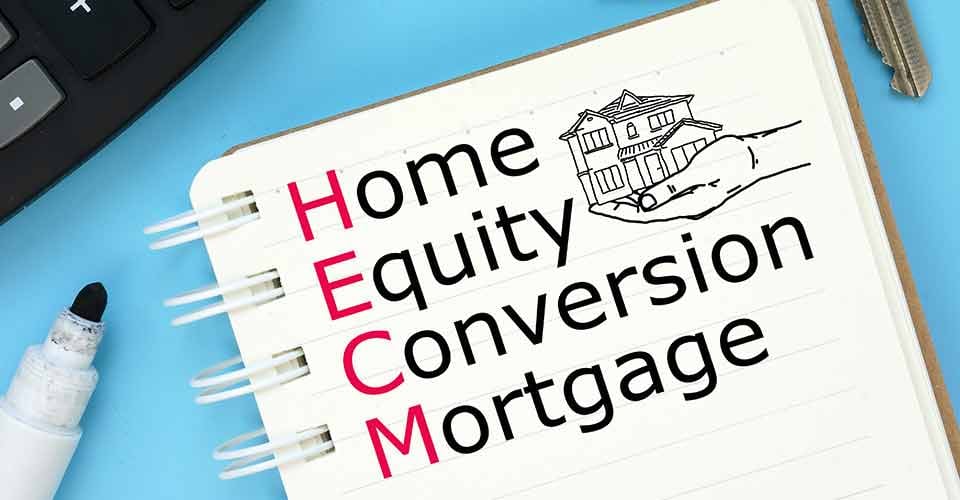The Legal Side of Equity Release Mortgages You Should Know
The Legal Side of Equity Release Mortgages You Should Know
Blog Article
Discovering the Various Sorts Of Equity Release Mortgages Available Today
Equity Release mortgages existing numerous choices for house owners aged 55 and over. equity release mortgages. These monetary products deal with various needs and preferences, permitting individuals to access funds from their residential or commercial property. From lifetime home mortgages to common gratitude mortgages, each kind uses distinctive advantages. Recognizing these choices is important for making informed choices. What elements should one consider when picking the most ideal equity Release plan? The details that follow might shed light on this vital topic
Recognizing Equity Release Mortgages
Equity Release home loans give house owners, generally those aged 55 and over, with a method to access the value linked up in their home without requiring to offer it. This financial choice permits individuals to transform a portion of their home equity into cash money, which can be used for different objectives, such as home improvements, settling financial debts, or funding retirement.Equity Release can take different types, yet it fundamentally includes loaning versus the value of the home while preserving ownership. Home owners can select to obtain a lump amount or a collection of smaller repayments, relying on their financial needs and preferences.Additionally, the quantity readily available for Release is influenced by the residential property's worth, the homeowner's age, and particular lending institution criteria. In general, comprehending equity Release home mortgages is important for homeowners to make informed decisions regarding using their home's equity while thinking about the lasting implications.
Lifetime Mortgages
Lifetime mortgages represent one of the most prominent types of equity Release. This financial product allows homeowners, generally aged 55 or older, to borrow versus the value of their residential or commercial property while keeping ownership. The funding, which is protected against the home, accrues interest with time yet does not need regular monthly repayments. Instead, the loan and built up rate of interest are paid back when the property owner dies or relocates into long-term care.Lifetime home mortgages use versatility, as debtors can select to receive a round figure or choose a drawdown facility, accessing funds as needed. Importantly, numerous plans come with a no-negative-equity warranty, guaranteeing that borrowers will certainly never owe greater than the value of their home. This attribute supplies assurance, enabling people to enjoy their retired life without the worry of diminishing their estate. Generally, life time home loans serve as a viable choice for those seeking financial backing in later life.
Home Reversion Plans

Drawdown Lifetime Mortgages
While numerous home owners look for means to access their wealth, drawdown life time mortgages present a versatile option that allows individuals to Release funds gradually. This type of equity Release home loan makes it possible for property owners to obtain against the value of their residential property while maintaining possession. Unlike standard lifetime home loans, drawdown strategies enable borrowers to access a section of their equity upfront and take out additional funds as needed, up to a fixed limit.This feature can be especially useful for those who wish to handle their funds carefully, as it reduces passion accumulation by only charging rate of interest on the quantities attracted. In addition, drawdown life time mortgages commonly feature a "no negative equity guarantee," ensuring that consumers will certainly never owe greater than their home's worth. This alternative suits senior citizens that want economic protection and flexibility, enabling them to satisfy unforeseen expenditures or maintain their way of life without having to market their building.
Boosted Lifetime Mortgages
Improved Lifetime Home loans supply unique benefits for eligible property owners seeking to Release equity from their properties. Recognizing the qualification criteria is important, as it establishes that can profit from these specialized fundings. Nonetheless, it is also crucial to examine the prospective downsides related to enhanced alternatives, guaranteeing a well-shaped viewpoint on their usage.
Eligibility Criteria Discussed
Comprehending the eligibility criteria for Boosted Lifetime Mortgages is essential for potential applicants looking for to access the equity in their homes. Typically, candidates must be aged 55 or older, as this age demand is basic in the equity Release market. Home owners ought to have a residential property valued at a minimum threshold, which can differ by lending institution. Importantly, the residential property needs to be their main residence and in excellent condition. Lenders often examine the homeowner's health status, as specific wellness problems may enhance eligibility and advantages. Additionally, candidates need to not have existing significant debts secured versus the home. Fulfilling these requirements allows individuals to check out Enhanced Lifetime Home mortgages as a feasible choice for accessing funds linked up in their homes.
Advantages of Boosted Home Mortgages
After making clear the eligibility standards, it comes to be evident that Improved Life time Home mortgages supply numerous considerable benefits for property owners wanting to take advantage of their residential or commercial property equity. Mostly, they supply accessibility to a bigger funding amount contrasted to basic life time home mortgages, profiting those with wellness conditions or age-related factors that increase their life expectancy threat. This improved loaning capability permits homeowners to fulfill different financial demands, such as home enhancements or retired life expenses. In addition, these home loans generally include flexible payment choices, enabling debtors to manage their finances better. The no-negative-equity guarantee further guarantees that property owners will certainly never ever owe greater than their property's value, providing satisfaction. In General, Improved Life time Home loans provide an engaging alternative for eligible home owners looking for economic options.
Potential Drawbacks Considered
While Improved Life time Mortgages use various advantages, prospective drawbacks warrant cautious factor to consider. One significant concern is the influence on inheritance; the equity launched lowers the value of the estate left to recipients. Furthermore, these mortgages can build up substantial rate of interest with time, causing a significant debt that might surpass the initial car loan amount. There might also be constraints on home alterations or rental, restricting house owners' adaptability. Improved items often require specific health and wellness problems, indicating not all house owners will qualify. Handling the costs and fees connected with these home mortgages can be complex, potentially leading to unexpected costs. Therefore, people must thoroughly evaluate their scenario and get in touch with economic consultants prior to proceeding.
Shared Recognition Home Mortgages
Shared Recognition Home mortgages stand for an one-of-a-kind financial plan that permits house owners to gain access to equity while sharing future residential or commercial property worth raises with the lender. This method offers prospective benefits such as reduced month-to-month repayments, however it likewise features disadvantages that must be meticulously taken into consideration. Recognizing the eligibility needs is important for those curious about this option.
Concept Introduction
Equity Release home mortgages, particularly in the type of common gratitude home loans, supply property owners a special financial solution that enables them to access funds by leveraging the value of their property. In this plan, a loan provider gives a lending to official source the home owner, which is normally repaid with a share of the home's future admiration in worth. This suggests that when the property owner offers the building or passes away, the lender receives a percent of the enhanced value, as opposed to just the first loan quantity. Shared admiration home mortgages can be appealing for those wanting to supplement their revenue or finance significant costs while preserving ownership of their home. Nonetheless, the monetary effects of common gratitude have to be very carefully considered by possible borrowers.
Advantages and Drawbacks
Although shared gratitude home mortgages can give substantial monetary advantages, they also include remarkable downsides that potential debtors ought to take into consideration. These mortgages permit property owners to accessibility equity in their residential properties while sharing a portion of any type of future gratitude with the lender. This arrangement can be valuable during times of climbing property worths, providing considerable funds without monthly payments. The primary downside is the potential loss of equity; homeowners might end up with substantially decreased inheritance for heirs. Additionally, the intricacy of the terms can lead to misunderstandings concerning repayment obligations and the percentage of admiration owed. For that reason, it is vital for borrowers to weigh these factors meticulously before dedicating to a common admiration mortgage.
Qualification Needs
What standards must house owners fulfill to get a shared recognition mortgage? Primarily, candidates have to be at least 55 years old, guaranteeing they are within the target demographic for equity Release products. Furthermore, the residential property should be their main residence and generally valued over a defined minimum limit, typically around ? 100,000. Lenders likewise examine the home owner's financial conditions, including revenue and arrearages, to ascertain they can take care of the mortgage properly. Significantly, the building must remain in good condition and complimentary from significant legal encumbrances. Property owners must additionally have a clear understanding of the terms, consisting of how admiration will be shared with the lender upon sale or transfer of the home, as this impacts overall returns.
Selecting the Right Equity Release Option

Regularly Asked Questions
What Age Do I Need to Be for Equity Release?
The age need for equity Release usually begins at 55 for most plans. Nevertheless, some service providers might supply alternatives for those aged 60 and above, reflecting differing terms based on individual circumstances and loan provider policies.
Will Equity Release Impact My Inheritance?
Equity Release can influence inheritance, as the amount obtained plus rate of interest minimizes the estate's value. Heirs might receive much less than anticipated, relying on the residential property's recognition and the total financial debt at the time of passing.
Can I Move Home With Equity Release?
The inquiry of moving residence with equity Release emerges frequently. Normally, people can move their equity Release plan to a brand-new home, yet specific terms and conditions might use, requiring examination with the lender for support.
Exist Fees Connected With Equity Release Mortgages?
Charges connected with equity Release home loans can consist of setup costs, assessment charges, and legal expenses. Additionally, there may be very early payment costs, which can influence the general price and monetary implications for the consumer.
How Does Equity Release Influence My Tax Circumstance?
Equity Release can impact one's tax obligation circumstance by possibly enhancing taxable revenue, as released funds are considered capital. It normally does not incur prompt tax responsibilities, making it important to consult an economic expert for customized guidance.
Verdict
In recap, the variety of equity Release home mortgages readily available today provides homeowners aged 55 and over multiple pathways to access their property's worth - equity release mortgages. Whether selecting a lifetime mortgage, home reversion plan, or various other options, each option offers unique advantages customized to specific monetary requirements. Mindful factor to consider and consultation with an economic advisor are important to guarantee the selected equity Release option straightens with personal goals and financial situations, inevitably promoting notified decision-making for a secure monetary future. Equity Release mortgages existing different options for house owners aged 55 and over. Equity Release home mortgages give house owners, usually those aged 55 and over, with a means to access the worth tied up in their residential or commercial property without requiring to offer it. Enhanced Life time Home mortgages provide distinct advantages for eligible home why not find out more owners seeking to Release equity from their buildings. Equity Release home loans, specifically in the kind of common gratitude mortgages, use property owners an one-of-a-kind monetary solution that enables them to gain access to funds by leveraging the worth of their home. In recap, the range of equity Release home loans available today supplies house owners aged 55 and over multiple paths to access their residential property's worth
Report this page